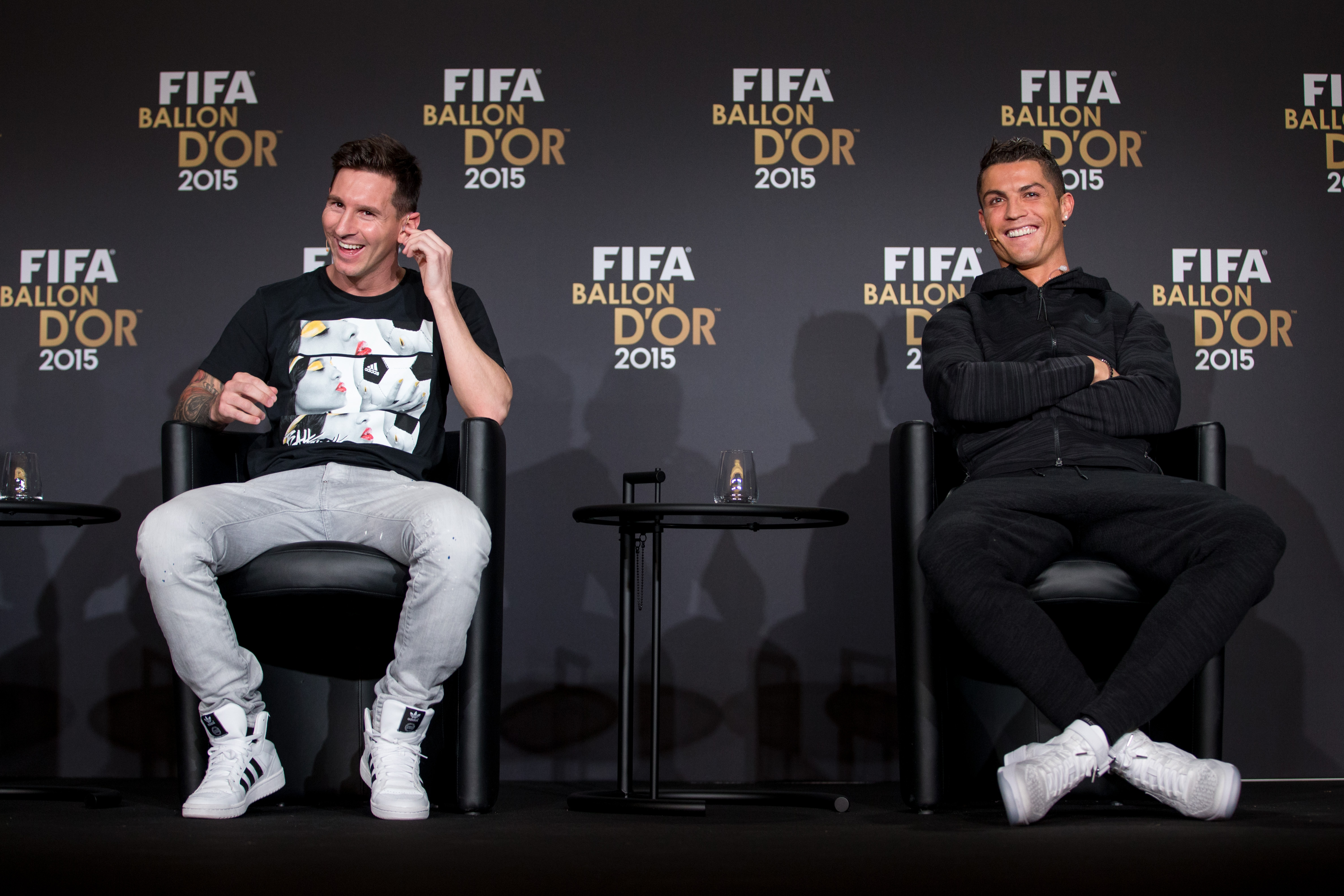How Messi and Ronaldo's Ballon d'Or tally would be if the voting system was changed earlier
The fact that the Ballon d'Or, and for that matter, most of the awards in the world, are a farce is well-accepted in the footballing circle. The fact that it still manages to surprise and shock people is a credit to the people organizing it and their marketing skills.

"The Ballon d'Or is more to do with marketing and press than for achievements on the pitch. I've earned all the awards I've been given. The Golden Shoe is for scoring the most goals and there's no option for people to take that away from me.
"I don't have a chance the Ballon d'Or because it works around marketing and I don't have that. My ambition is to win another Champions League, that would be great," Luis Suarez said recently after winning the European Golden Shoe.
That is a depressing commentary on what is deemed to be the highest individual honor in the sport. When a player knows that he has no chance of winning an award despite how well he performs on the pitch, it questions the credibility of the award itself.
Since the Ballon d'Or and the FIFA World Player of the Year award were merged in 2010, there have been just two winners—Lionel Messi and Cristiano Ronaldo. While the duo undoubtedly
There were 14 different winners in the first 19 editions. There have been 2 different winners in the last 6.
Before merging with FIFA, France Football were the organizers of this award which was originally awarded to the best European player of the season. Initially, players of only European origin were awarded the Ballon d'Or, however, all the players playing at a European club were eligible for the award since 1995 when George Weah won it while playing for AC Milan.
The initial voting system of the Ballon d'Or included only Europe-based journalists. In 2007, the scope of the award was changed to one where all the players across the world were eligible for it, while journalists from all over the world voted for it. However, the format changed drastically once FIFA got involved in it.
National team coaches and captains from a selection of FIFA's 209 national associations would join journalists (only one per country) to select the best player in the world. In the past 6 years, however, this change in the rule has only exposed the inherent flaws of democracy.
Open disclosure of the results:

 © Getty Images
© Getty ImagesAn organization which has been accused of lacking transparency, FIFA had introduced it at the worst possible event. The governing body decided to disclose every voters' choice to the public, and this has opened a can of worms. Back in 2013, Germany's coach Joachim Loew refused to vote after five German players—Manuel Neuer, Philipp Lahm, Bastian Schweinsteiger, Thomas Muller, and Mesut Ozil—were shortlisted for the awards. Loew felt that choosing three out of these five with the votes publicly visible could create disharmony in the team.
With the full disclosure of the results, no Argentine would vote against Lionel Messi, while the Portuguese would always opt for Cristiano Ronaldo. Similarly, most of the voters are inclined to vote for players of their respective clubs or national teams.
Fernando Santos was the only Portuguese who voted for Lionel Messi last year. The only Argentine who voted for someone other than Messi for the first spot was Messi himself because by the rules he cannot do that.
The constituents were too 'global':
While the global nature of the voters makes for a good show, the possibility of this 'global' set of electors having hardly watched or encountered any of the footballers play for a complete season makes them no better than the armchair fans. Last year, Pakistan coach Mohammed Shamlan Mubarak Basheer Al Shamlan voted for Arjen Robben in the first place despite the Bayern Munich winger spending most of the year on the treatment table, while the Guatemala and Mauritania captains both went for Javier Mascherano.
Tactical voting:
Ballon d'Or voting is nothing short of a warfare. Lionel Messi and Cristiano Ronaldo have never voted for each other, and they never will. Back in 2014, Lionel Messi voted for fellow Argentine Angel di Maria and fellow Barcelona teammates Andres Iniesta and Javier Mascherano. Meanwhile, Ronaldo thought Sergio Ramos, Gareth Bale, and Karim Benzema were the best players in the world. Back in 2012, Messi, who had opted for his close friend Sergio Aguero, Xavi, and Iniesta, defended his choice by saying, “It would be stupid not to consider Cristiano as one of the best. I just thought those were the players I should vote for".
It is not that their votes affect the eventual result in a big way, but it does show how competitive these two players are for the award.
A lot of deserving candidates who should have been considered for the award have been lost in the shadow that this fight
- In 2010, Andres Iniesta, with 40 votes from media personnel, would have won the award instead of Lionel Messi, while Xavi and Wesley Sneijder would have finished second and third respectively.
- In 2013, Franck Ribery would have won the Ballon d'Or, by a big margin with 77 votes, with Cristiano (47 votes) and Messi (31 votes) taking second and third place respectively. Instead, the Real Madrid man walked away with the prize.
- In 2014, Manuel Neuer would have finished above Messi in the second place with 37 votes compared to just 4 votes for the Argentine. Ronaldo would have still won the award, though.
It is just that Ballon d'Or has long turned into a farce—a two-horse race which still manages to retain its label of being the best race out there. How daft are we?
This year, Barcelona's Luis Suarez is perhaps the most deserving candidate. But, he is unlikely to win it considering Portugal's success in the Euros and Real Madrid's success in the Champions League. Also, as Suarez had pointed out earlier, he is not as marketable as Messi or Ronaldo, given how Ballon d'Or stresses on 'behavior'. Back in 2013, it looked like Ribery would walk away with the trophy when the initial results were disclosed, but then FIFA chose to extend the voting deadline to November 29 and Ronaldo produced a memorable performance in the World Cup Qualifiers against Sweden. The Portuguese star walked away with the award as the Bayern Munich manager Uli Hoeness labeled it as an 'embarrassing conspiracy'.
Had the voting system been improved earlier, and had FIFA not leeched on the award for the past six years, Messi and Ronaldo would have won at least one less Ballon d'Or each. The likes of Ribery and Iniesta would, deservingly, have won an award each. Not that these players, or the defenders and goalkeepers of this world, need any award to validate their contribution or quality. It is just that Ballon d'Or has long turned into a farce—a two-horse race which still manages to retain its label of being the best race out there. How daft are we?

Comments
Sign up or log in to your account to leave comments and reactions
0 Comments